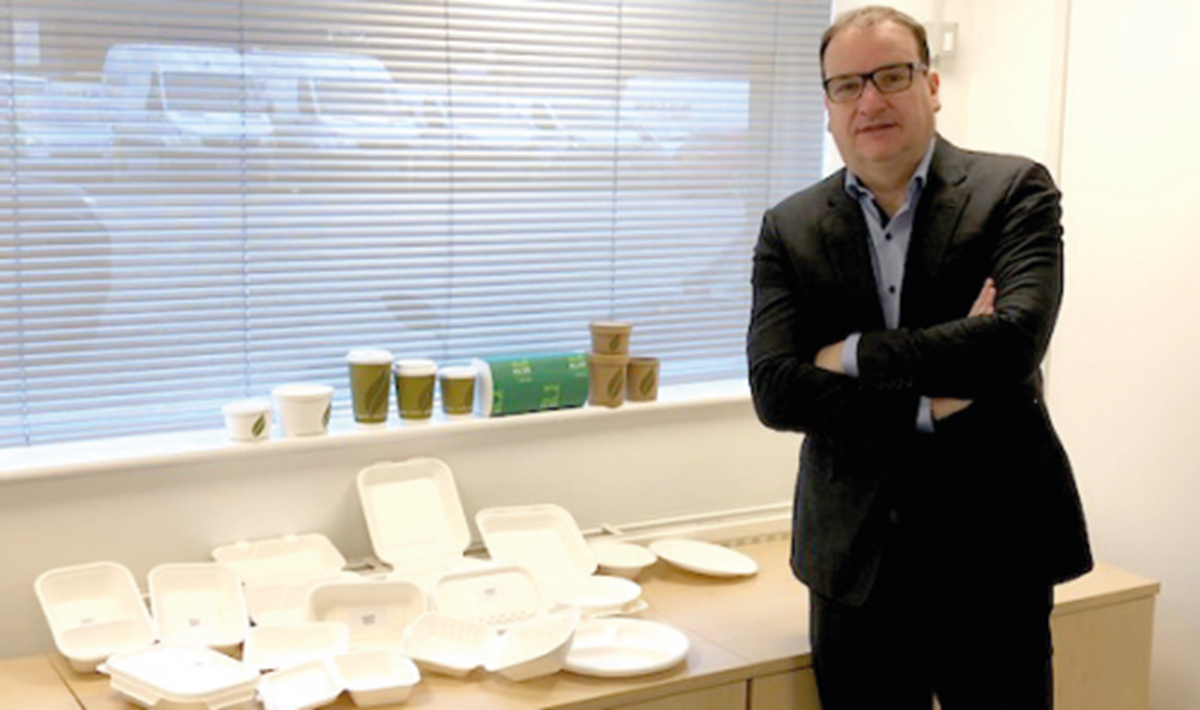Chancellor Philip Hammond and environment secretary Michael Gove recently announced consultation processes on turning manufacturers and consumers away from single-use plastic products, which are a major pollutant.
While environmentalists have applauded the government’s proposals, no one doubts the enormity of the challenges ahead.In 2016 over one million tonnes of plastic packaging was collected for recycling in the UK. However, the amount generated is much greater and currently runs at around 2.4 million tonnes annually, according to Richard McKinlay, head of circular economy at recycling business Axion.
The deposit return concept hit the headlines when Michael Gove announced plans to introduce a scheme in England expected to cover single use plastic bottles, glass and steel and aluminium cans.“Deposit Return Schemes should increase recycling rates for the materials included in the scheme,” explains Richard.
“However, these already have a comparatively high recycling rate compared to other packaging materials, so any increase on overall rates will be marginal.” Philip Hammond’s proposed tax on single-use plastics represents a ‘stick’ to Michael Gove’s ‘carrot’.“This tax could also be used to increase recycling rates if the money goes into setting up new collection and recycling infrastructure,” says Richard. “And it could be effective on products where there is a viable alternative for consumer use, such as reusable coffee cups.”

Richard accepts that both tax and a deposit scheme have their merits, but believes an ‘Extended Producer Responsibility’ system would be more effective.
“Such a scheme would encourage brands to design end-of-life for their packaging in exchange for reduced compliance fees, and so improve the ‘recyclability’ of their packaging,” he says.Whichever measures the government takes will create significant cost and operational implications for businesses across manufacturing supply chains and Lancaster University is collaborating with regional SMEs and other stakeholders, including Lancaster City Council.
The council’s working group on reducing plastic bottles and disposable cups recently sought the university’s advice via the Centre for Global Eco-Innovation (CGE).Part-funded by the European Regional Development Fund (ERDF), the CGE enables innovative companies to carry out R&D with the expertise, resources and facilities of the university and its partners.
The centre’s Low Carbon Innovation Forum – which includes representatives from Lancashire SMEs – considered the single plastics waste problem and made recommendations to the council.
In response to the forum’s findings, the council is taking on a local leadership role in helping to raise awareness and seeking support from partners.
It is also developing a strategy for reducing single-use plastics that will include visible actions, such as policies for events on public land, providing drinking water fountains, and a procurement policy for council cafés.Williamson Park café, for example, is already promoting the use of reusable cups and using bio degradable café products.
Lancaster University is equally keen to set a strong example and is implementing a number of measures to reduce single-use plastics, with a focus on disposable and takeaway cups. These include trialling a scheme that involves a 20p surcharge on hot drinks served in disposable cups at its catering outlets.“The surcharge will not apply if the customer brings a reusable cup.” says Darren Axe, environmental projects coordinator at Lancaster University Students Union.
“People who don’t have a re-usable cup can rent one, which they can either keep or return for a full refund.“The students’ union is also keen to continue to campaign for further schemes leading to a reduction in single-use plastics, such as take-away meal trays or boxes and drinks bottles.”
Meanwhile, Green Lancaster – a collaborative initiative involving the university and the students’ union – is collaborating with the CGE. “Following this work at the University, Green Lancaster and the CGE hope to work more widely with local SMEs and the city council to reduce packaging waste across the area,” says Darren.Among local businesses at the forefront of Lancaster’s drive to reduce plastic waste is foodservice disposables business Vertella.
It is also one of the university’s ‘greenest' suppliers. “Having supplied the university for a number of years, we are encouraging them to switch from plastic to a range of greener alternatives from environmentally responsible packaging to eco-friendly cleaning materials,” says Vertella managing director Paul Bentley.“Our green range contains products that are compostable, biodegradable, recyclable and made from recycled product. Many are accredited by the Forestry Stewardship Council to display the Ecolabel and are made from fully sustainable sources. “The range is a new ‘one stop shop’ offering to ensure customers have access to the most environmentally friendly products on the market,” adds Paul.
Enjoyed this? Read more from Holly_LBV




















